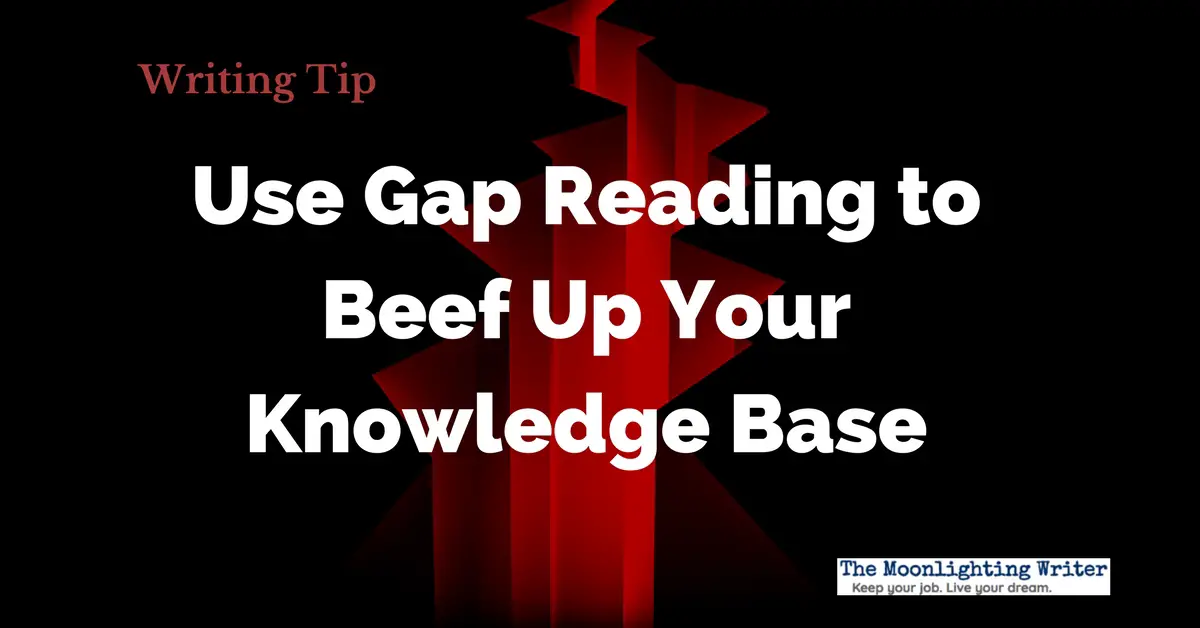[et_pb_section admin_label=”section”][et_pb_row admin_label=”row”][et_pb_column type=”4_4″][et_pb_text admin_label=”Text”]
The single most important key to writing more, and writing better, is simply to get your bottom in the chair, belly-up to the keyboard, and actually write. Do it a lot, even if you don’t have much time per session. Eventually, all of those minutes and hours will turn into words and chapters, and you’ll have built a decent body of work.
But if you’re looking for a single tip or trick to improve your writing, then you can’t do much better than reading.
Reading Is Your Secret Writing Weapon
Hopefully, if you’re a writer and have designs on making writing a major part of your life, you’re already an avid reader. Because only by reading a ton can you discover the type of writer you want to be and the style of writing that you want to emulate. Reading will also teach you more about sentence structure and word choice than Mrs. Graham’s ninth-grade English class ever could.
So, you know you should read … but what should you read?
Well, fiction for sure. Especially in the genre(s) in which you plan to write.
But non-fiction has a place in your library, too. Read history when you’re doing research for your stories or when you just want to learn something about the human condition. As they say, truth can be stranger than fiction, and you may not believe some of the stuff our predecessors went through.
Read books and blogs about writing, but don’t get too hung up on them or any particular advice. Read other personal-development books but, again, don’t get so wrapped up in trying to find a better mousetrap that you miss the cheese right under your nose.
Read news and sports and entertainment websites if you want, but not to excess. A positive mindset is important, and dwelling on the wildness and bitterness that passes as news can bring you down.
The Infinite Book Room
That’s a huge library to consider, and it really just skims the top of the book stack available to us in this age of e-readers and free e-books.
Your bandwidth is likely already jammed with emails, phone calls, and soccer practices, so how are you ever going to do all the reading you want to do?
The truth is, you’ll probably never catch up on your reading list, but that’s a good thing. The minute we think we know everything or have read all there is of interest to read in the world is the moment we stop learning and start dying.
Make a Dent with Gap Reading
But you almost surely can read more than you are now … if you engage in a little “gap reading.”
No matter how busy you are, there are down times in your schedule every day — periods when you’re just waiting for the next thing to happen. These are the golden moments that can boost your page count and help you take in more of the information you crave.
These days, it’s really easy to take advantage of these opportunities, too.
Just install the Kindle reader app on your phone and download some free e-books — or buy the ones you really want to read. Then, any time you find yourself twiddling your thumbs, pull out your phone and start learning. Truth be told, you probably already pull out your phone in these cases, but instead of scrolling through your Facebook feed, why not do something productive?
Heck, your family and friends don’t even have to know what you’re doing if you don’t want them to. After all, they have their noses buried in their own phones most of the time, too.
Find the Gaps
Gap reading can be used in many contexts, but here are just a few ideas:
- In waiting rooms (doctor’s office, car repair shops, principal’s office, etc.)
- While exercising, especially on a treadmill or stationary bike
- At your kids’ soccer practices (you’re not watching every move the whole time)
- Instead of watching TV at night
- Even while watching TV if your spouse is picking the show and you really don’t like it
- Walking to and from the bathroom during breaks at work — don’t crash into anyone, though!
- Waiting for your food at a restaurant
- During your commute if you carpool
- During your commute if you drive alone — audio books only for this one!
The list goes on and on, and it’s limited only by your imagination.
Gap reading is the sneaky method of squeezing more information into your brain so that you can become a better writer over time. Make liberal use of it if your “to read” list seems to only grow, but never shrink.
[/et_pb_text][et_pb_text admin_label=”Butt-In Seat Inline Opt-In” background_layout=”light” text_orientation=”left” use_border_color=”off” border_color=”#ffffff” border_style=”solid” saved_tabs=”all”] [et_bloom_inline optin_id=”optin_12″] [/et_pb_text][/et_pb_column][/et_pb_row][/et_pb_section]
